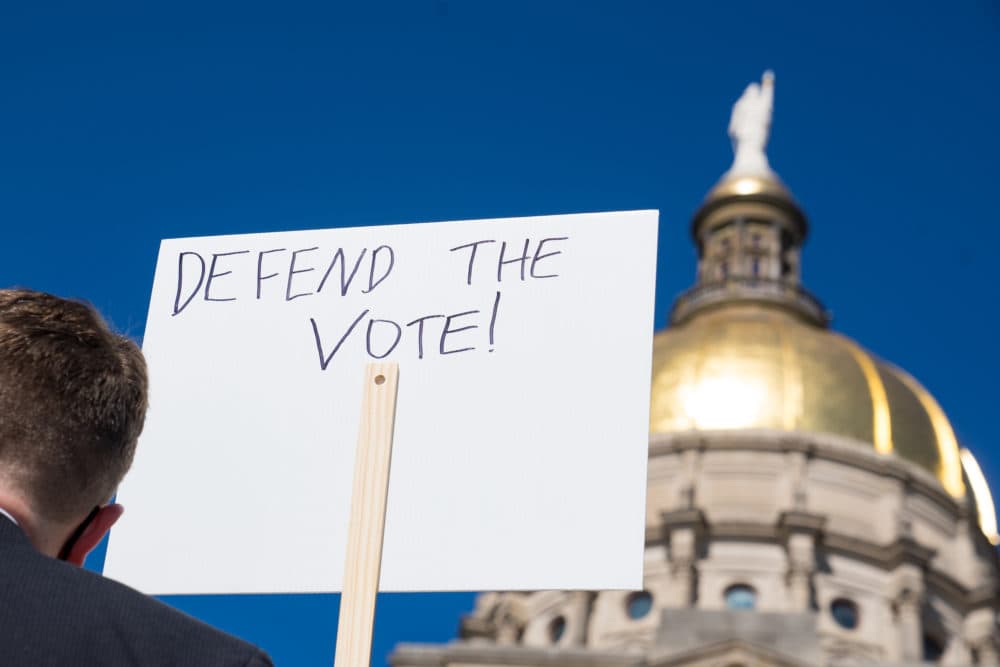Advertisement
Corporate Activism: Why Big Business Is Taking A Stand In Partisan Politics

After Georgia passed restrictive voting laws, corporate leaders spoke out. We discuss this new wave of corporate activism and what comes next.
Guests
Ronnie Chatterji, professor at Duke University’s business school who studies corporate activism on social and political issues. Former senior economist at the White House Council of Economic Advisers. Co-author of "Can Business Save the Earth?" (@RonnieChatterji)
Ashley Spillane, founder and president of Impactual, a social impact consulting firm. (@aspillane)
Jack Beatty, On Point news analyst. (@JackBeattyNPR)
From The Reading List
Washington Post: "Hot-button issues from voting rights to tax hikes redraw the lines in corporate America" — "The nation’s top business leaders are pushing back against President Biden’s plans to raise corporate taxes to pay for his infrastructure plan, as corporate America wades further into a growing number of hot-button policies that put it at odds, by turns, with lawmakers and stakeholders, and test the development of its public voice."
New York Times: "Inside Corporate America’s Frantic Response to the Georgia Voting Law" — "On March 11, Delta Air Lines dedicated a building at its Atlanta headquarters to Andrew Young, the civil rights leader and former mayor. At the ceremony, Mr. Young spoke of the restrictive voting rights bill that Republicans were rushing through the Georgia state legislature. Then, after the speeches, Mr. Young’s daughter, Andrea, a prominent activist herself, cornered Delta’s chief executive, Ed Bastian."
New York Times: "Hundreds of Companies Unite to Oppose Voting Limits, but Others Abstain" — "Amazon, BlackRock, Google, Warren Buffett and hundreds of other companies and executives signed on to a new statement released on Wednesday opposing 'any discriminatory legislation' that would make it harder for people to vote."
New York Times: "The Marriage Between Republicans and Big Business Is on the Rocks" — "'Woke capitalism' has been a steadily growing phenomenon over the past decade. The muscle of the movement was evident as early as 2015 in Indiana and 2016 in North Carolina, when corporate opposition forced Republicans to back off anti-gay and anti-transgender legislation."
The Economist: "CEO activism in America is risky business" — "If you are an emblem of American harmony like Coca-Cola, you play your politics carefully, especially on issues as divisive as race and voting. The soft-drinks company did so brilliantly in 1964 when the elite of Atlanta—home to both Coca-Cola and Martin Luther King—threatened to snub the civil-rights leader on his return from winning the Nobel peace prize."
This program aired on April 19, 2021.

